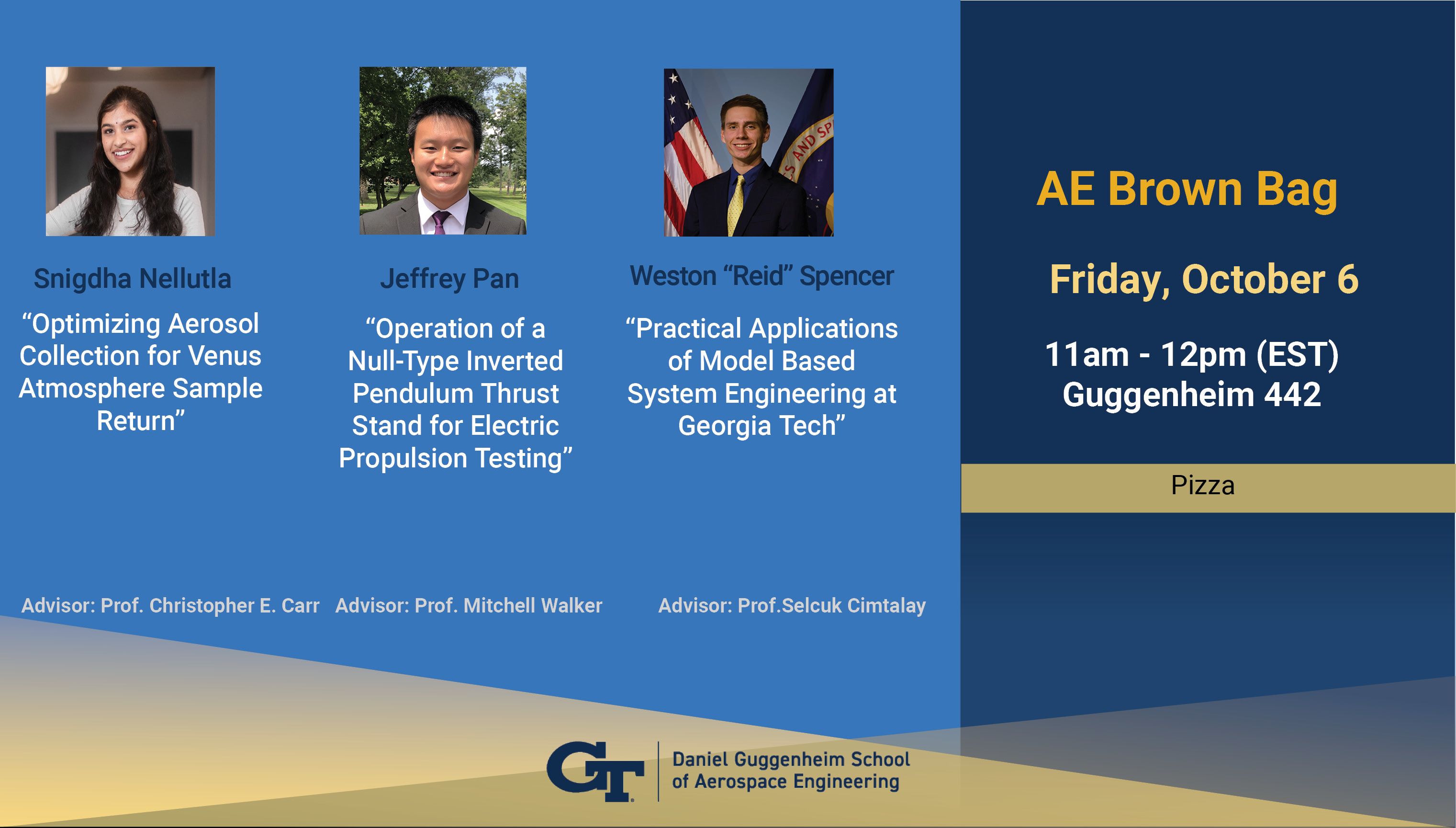
Brown Bag Seminar
Friday, October 6
11:00 a.m. -12:00 p.m.
Guggenheim 442
Pizza will be served
Presenters
Snigdha Nellutla
Jeffrey Pan
Weston "Reid" Spencer
Snigdha Nellutla
Title:
"Optimizing Aerosol Collection for Venus Atmosphere Sample Return"
Abstract:
The quest to find life beyond Earth has motivated researchers to explore the environmental conditions on other worlds and the limits of chemical complexity, including alternative solvents. While the Venus clouds are thought to be too dry and too acidic for life as we know it, their study can inform the null hypothesis of no life, the limits of chemical complexity, and the potential for life as we don’t know it. Further insights are needed to fully understand the chemical composition of Venusian clouds and the potential for organic chemistry. Due to the limitations of in situ analyses, a sample return mission is being contemplated to increase the chances of accurate chemical analysis of Venusian cloud samples. The long-term goal is to develop the best design for aerosol collection systems that could be deployed in the atmosphere of Venus under realistic resource constraints. The presented work focuses on a collector derived from Earth-based passive fog collectors using different materials and mesh designs to determine their corresponding collection efficiencies.
Advisor:
Professor Christopher E. Carr
Jeffrey Pan
Title:
"Operation of a Null-Type Inverted Pendulum Thrust Stand for Electric Propulsion Testing"
Abstract:
Electric propulsion (EP) thrusters use a combination of electric and magnetic fields to accelerate propellant ions and generate thrust. Limitations on these acceleration mechanisms result in typical thrust levels on the order of millinewtons and extremely low thrust to weight ratios, making the usage of standard load cells difficult. As a result, electric propulsion test facilities use specialized thrust stands to achieve the needed sensitivity and precision. This presentation will focus on the null-type inverted pendulum thrust stand used in both HPEPL test facilities, covering the general theory, mechanisms, and operational details required for accurate millinewton thrust measurements.
Advisor:
Professor Mitchell Walker
Weston "Reid" Spencer
Title:
"Practical Applications of Model Based System Engineering at Georgia Tech"
Abstract:
This research project employs Model-Based Systems Engineering (MBSE) methodologies to comprehensively analyze and model the Ramblin' Reck, a 1930 Ford Model A Sport Coupe that represents Georgia Tech's spirited tradition. Using MBSE techniques, this project work to enhance the understanding of the Reck's complex systems, address critical safety concerns, and improve operational reliability. The project begins with a system decomposition, identifying key components and their interdependencies within the Reck's mechanical and electrical systems. Functional models were developed, and potential failure modes were identified through a systematic FMEA (Failure Modes and Effects Analysis) process. Using SimuLink, fault propagation and their effects were analyzed to provide more information about results of failures. This research aims to contribute to the preservation and safe operation of the Ramblin' Reck at Georgia Tech.
Advisor:
Professor Selcuk Cimtalay